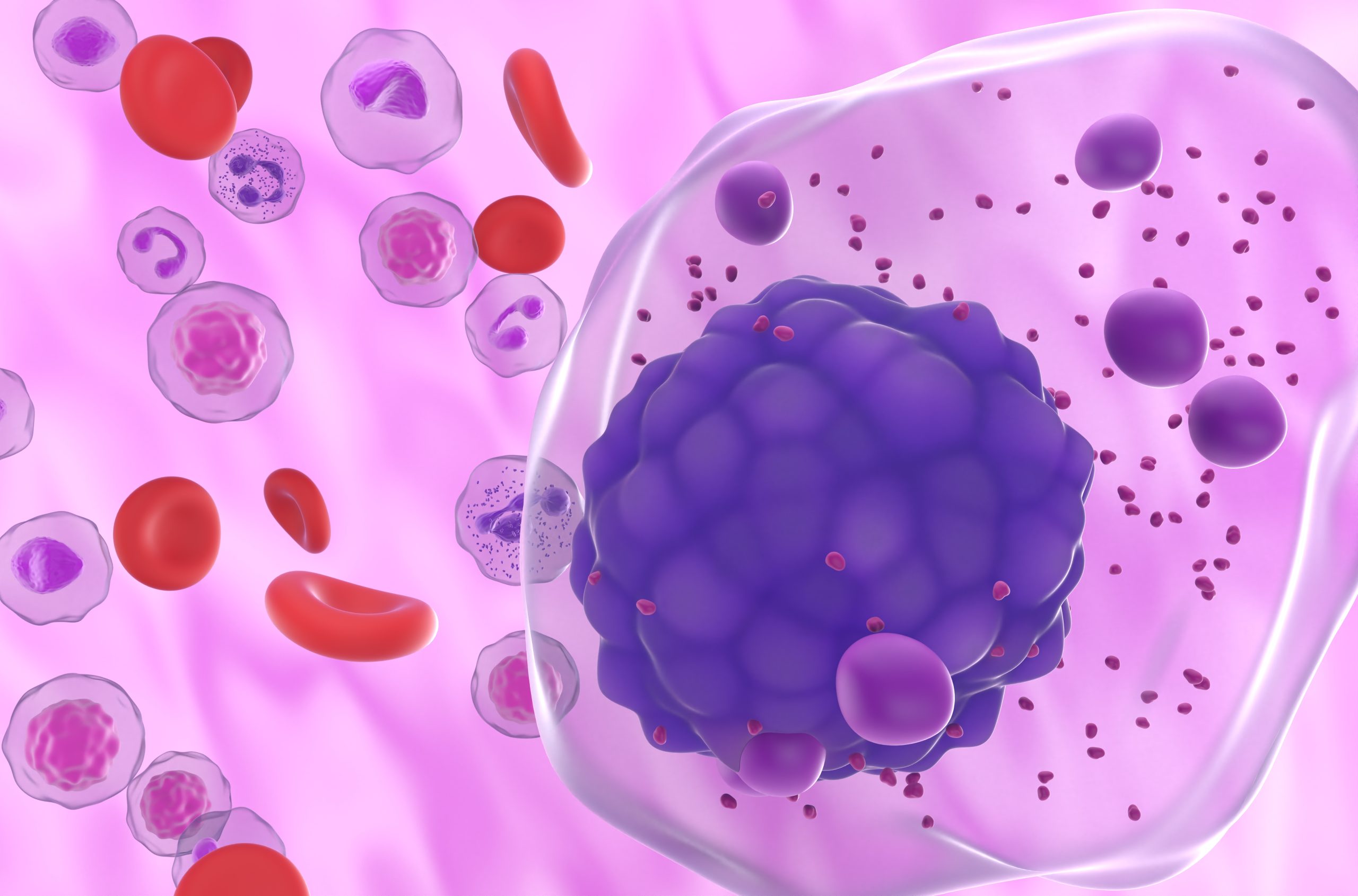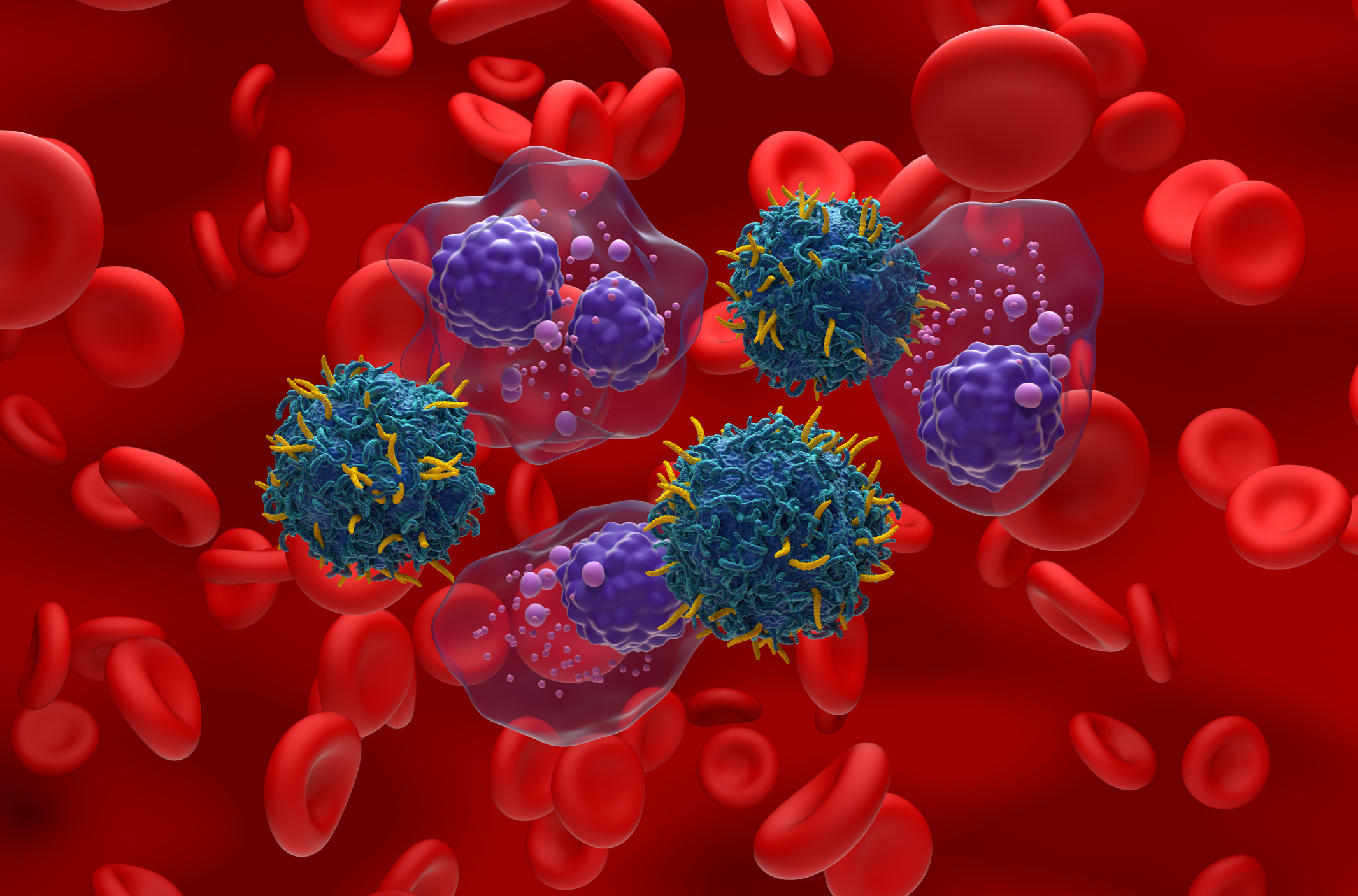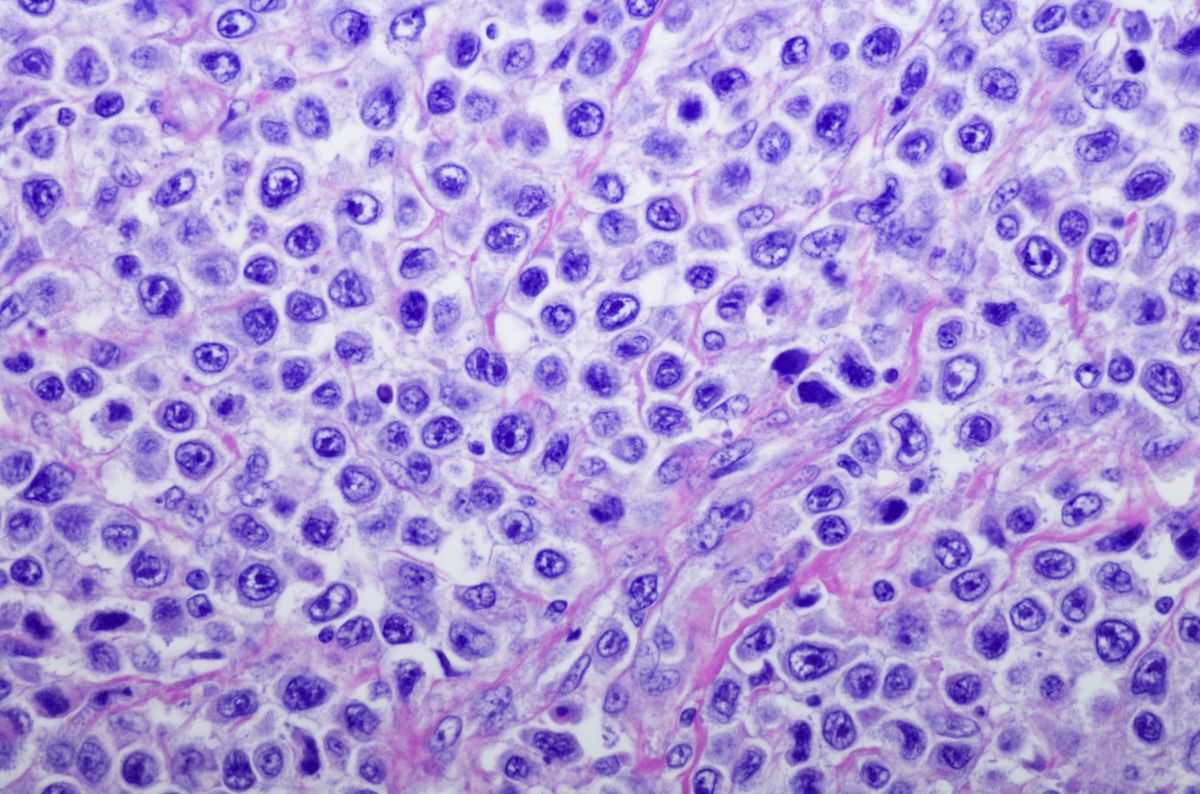
Adding ixazomib to pomalidomide and dexamethasone improved progression-free survival (PFS) rates in patients with multiple myeloma (MM) who were progressing on frontline lenalidomide treatment, according to research presented at the 19th Annual International Myeloma Society (IMS) Meeting.
The research was presented by Peter Vorhees, MD, of the Levine Cancer Institute at Atrium Health, who with colleagues conducted the randomized phase II Alliance A061202 study.
“The addition of ixazomib to the pomalidomide and dexamethasone backbone for patients with multiple myeloma relapsed on lenalidomide as part of frontline therapy decreased the risk of progression or death by 59%,” Dr. Vorhees said during a poster presentation on the research at the IMS conference.
The investigators randomized relapsed patients 1:1 to receive ixazomib, pomalidomide, and dexamethasone (n=38) or pomalidomide and dexamethasone (n=39). All patients received one prior line of therapy, progressed on frontline lenalidomide, and did not have proteasome inhibitor refractory disease. Treatment continued until disease progression or “the emergence of unacceptable side effects,” according to the trial’s investigators.
The median PFS was 20.35 months in the triplet treatment arm and was 7.5 months in the doublet treatment. The PFS was significantly higher for the triplet regimen after adjustment for stratification factors (P=.0157).
The median duration of response was 23.7 months in the triplet treatment arm and was 12.3 months in the doublet treatment arm. The median overall survival (OS) has not been reached in either arm. The two-year OS was 81% in the triplet treatment arm and 79.2% in the doublet treatment arm.
The overall response rate was higher in the triplet treatment arm (63.2%) compared with the doublet treatment arm. The rate of very good partial response or better was also higher in the triplet treatment arm (29%) than in the doublet treatment arm (5.1%).
“Importantly, patients with progression on pomalidomide and dexamethasone were allowed to cross over to the triplet [treatment] upon progression,” Dr. Vorhees said.
The overall response rate in patients who crossed over to the triplet treatment (n=26) was 19.2%, with a very good partial response or better in 15.4% of patients.
The most common grade ¾ adverse events included lymphopenia, neutropenia, anemia, and fatigue in 40%, 37%, 16%, and 16% of patients in the triplet treatment arm, respectively, and 26%, 21%, 13%, and 15% in the doublet arm, respectively. Adverse events, including infection, “were well balanced” between the arms, Dr. Vorhees said.
The study’s results have implications for further research and treatment avenues, he said.
“Interestingly, the pomalidomide and dexamethasone doublet did not perform well as second-line therapy for patients progressing on frontline lenalidomide, reinforcing the role of triplets in relapsed refractory multiple myeloma and raising concern for some degree of cross resistance when pomalidomide is given immediately after disease progression on lenalidomide,” Dr. Vorhees concluded. “Our results support phase III studies of this regimen in first relapse and application of this oral regimen in real-world practice.”
Vorhees P, Suman V, Efebera Y, et al. Addition of ixazomib to pomalidomide-dexamethasone improves progression-free survival for myeloma patients progressing on frontline lenalidomide: results of the randomized alliance study A061202. Poster #282. Presented at the 19th Annual International Myeloma Society Meeting; August 25-27, 2022.






 © 2025 Mashup Media, LLC, a Formedics Property. All Rights Reserved.
© 2025 Mashup Media, LLC, a Formedics Property. All Rights Reserved.